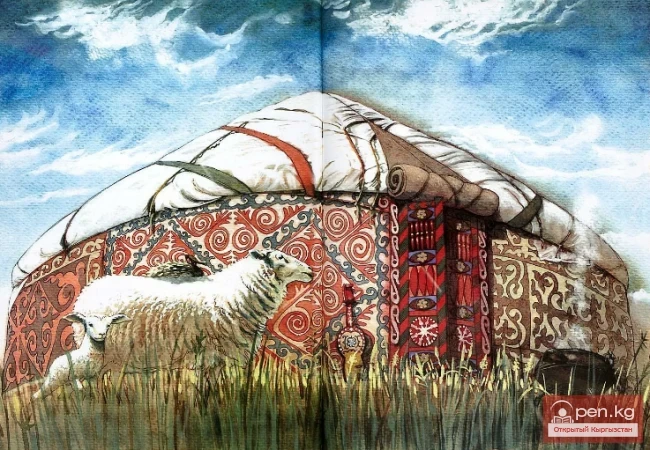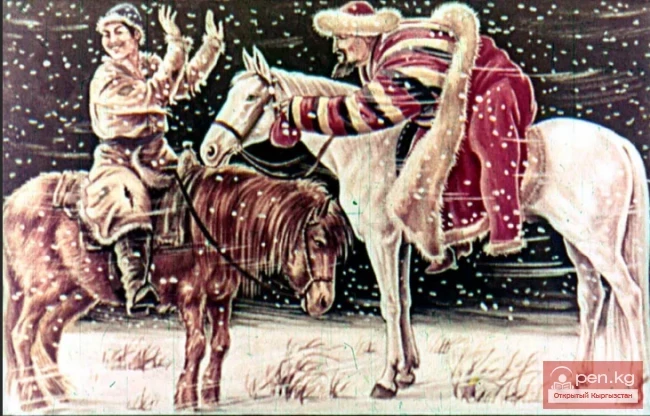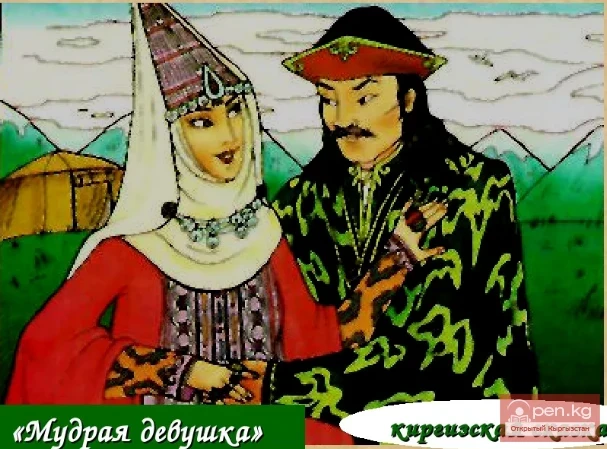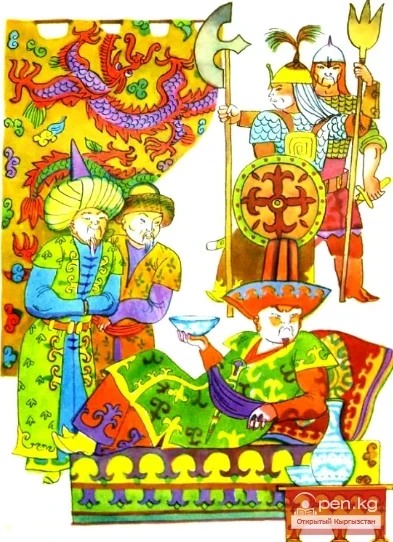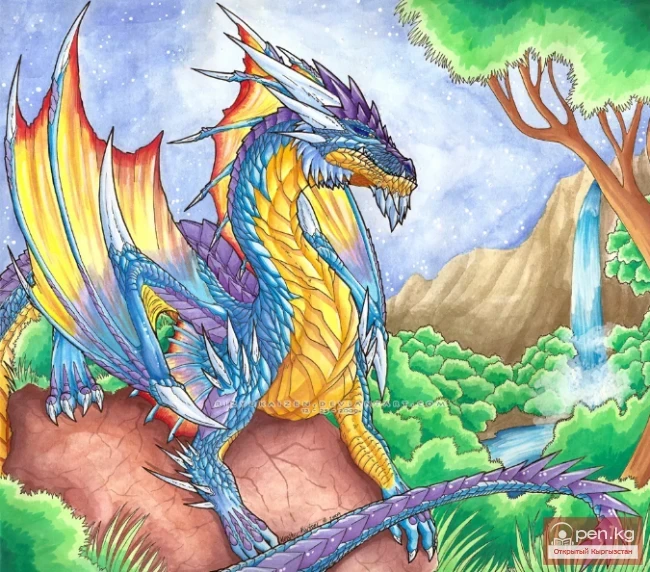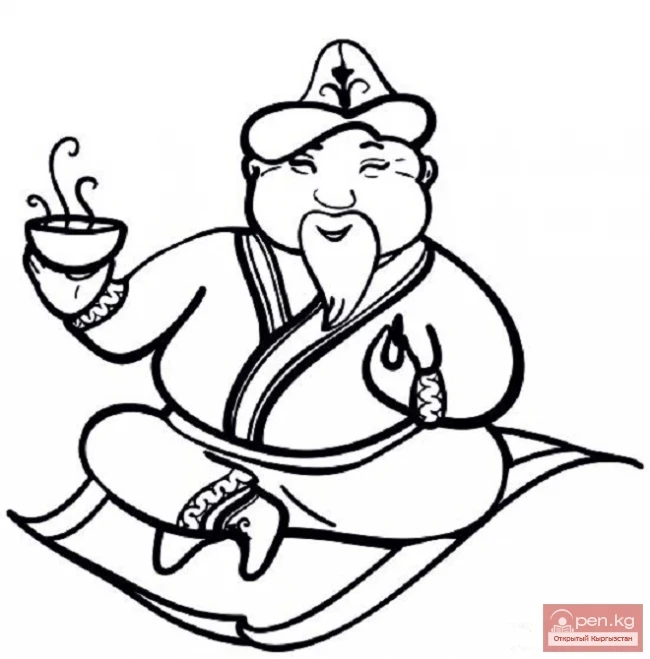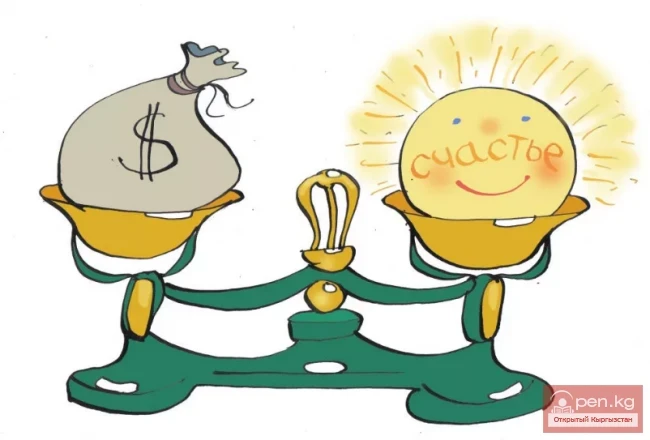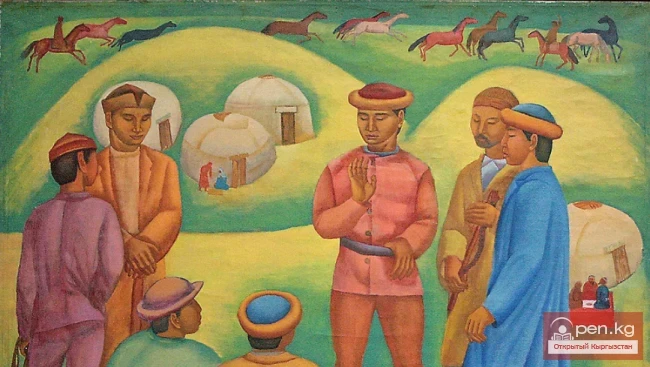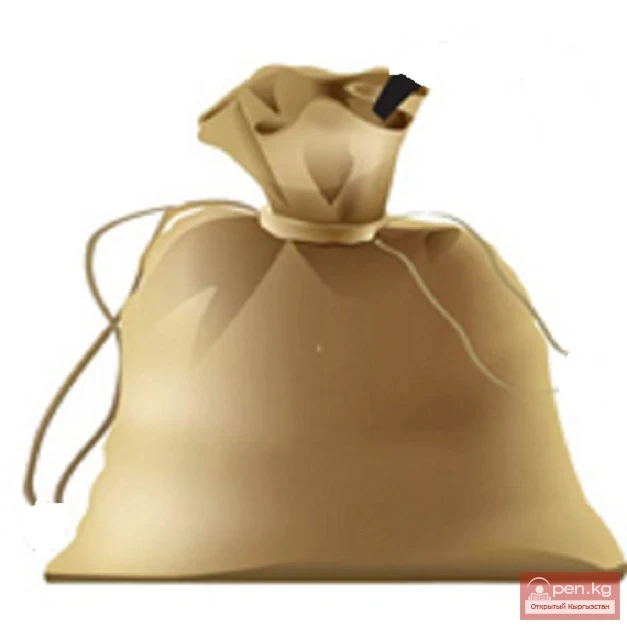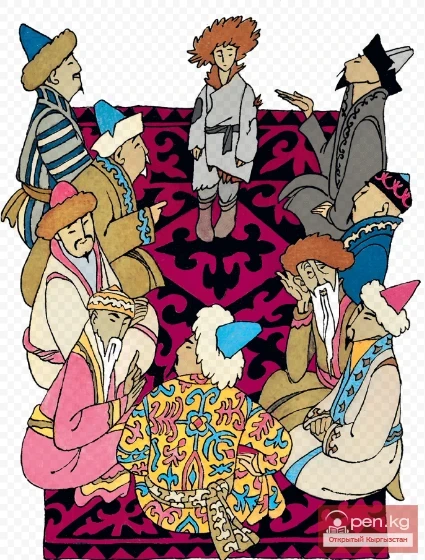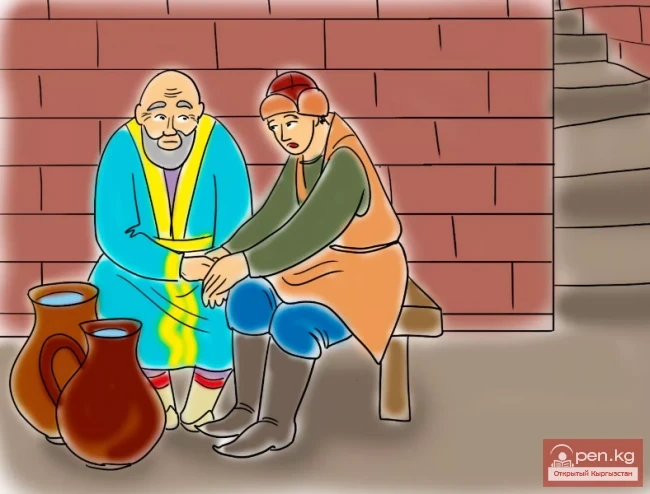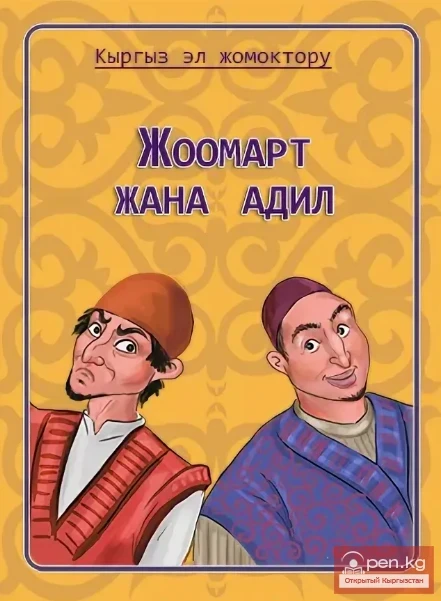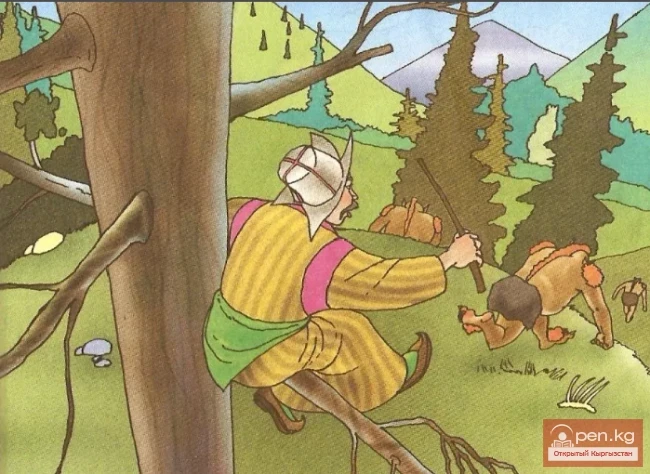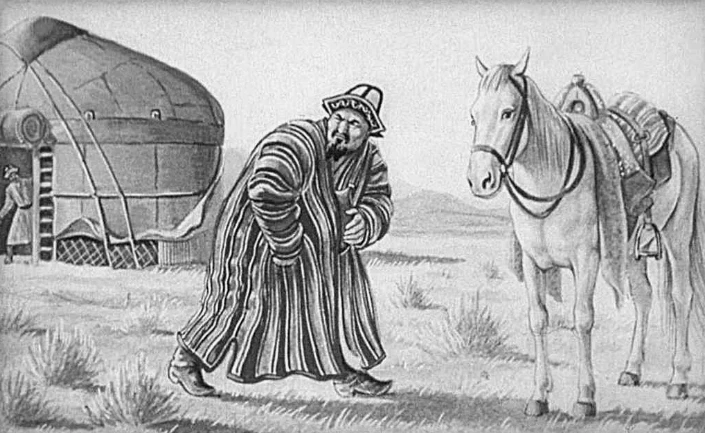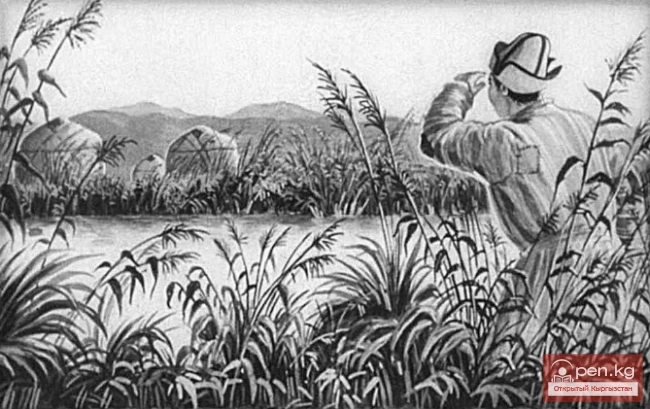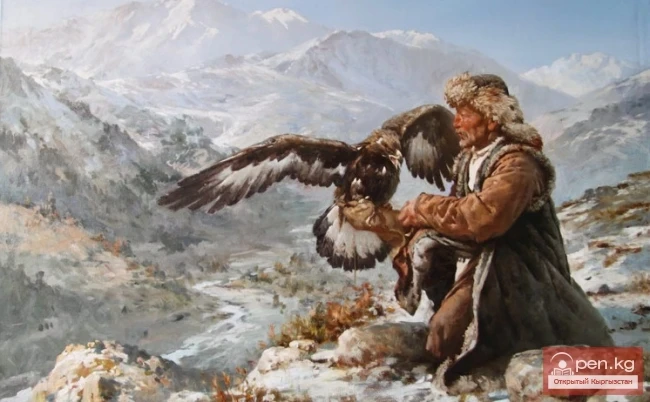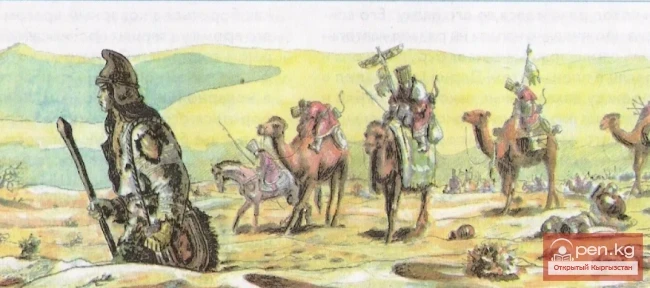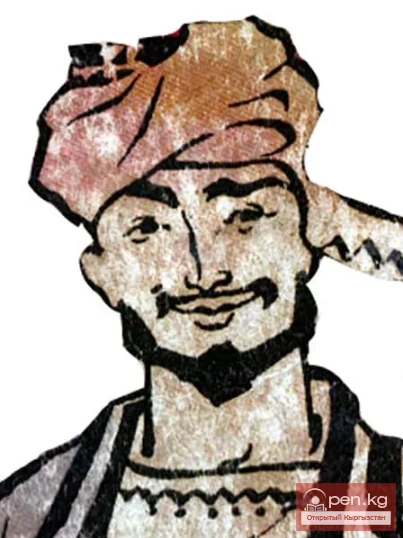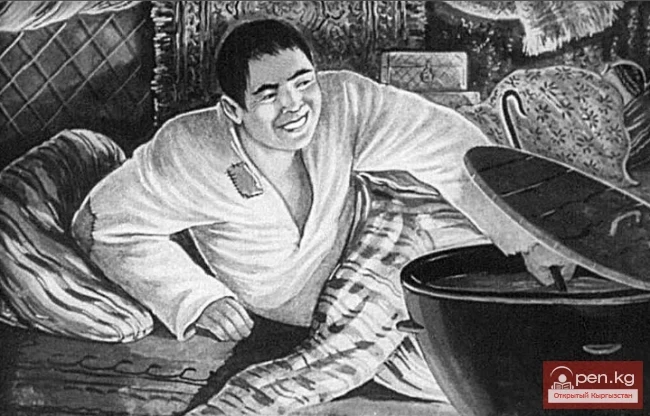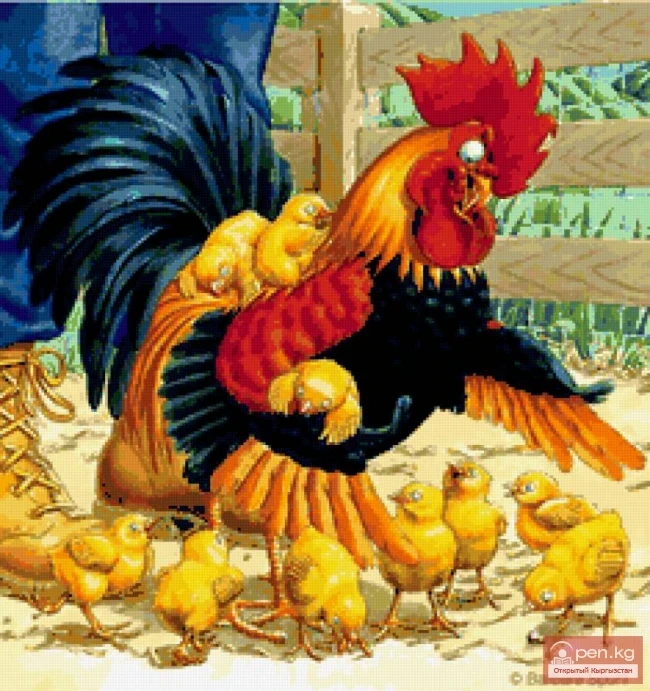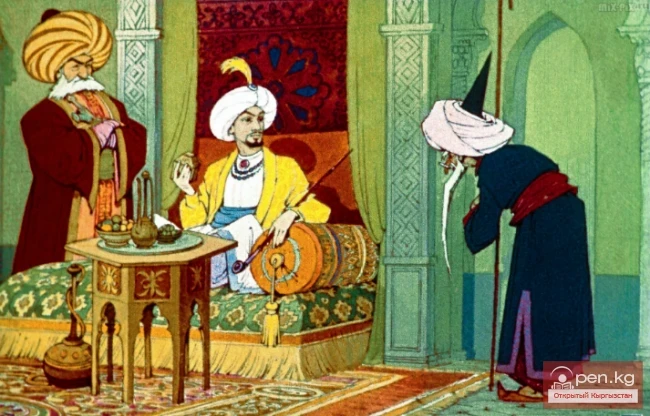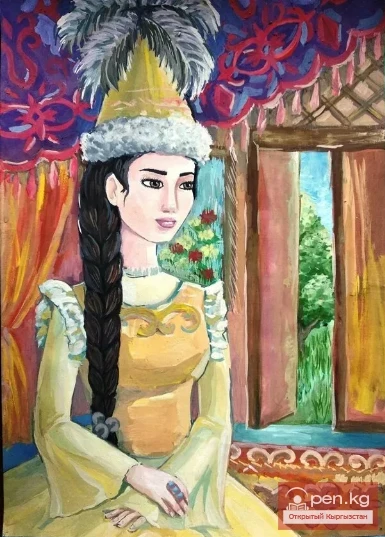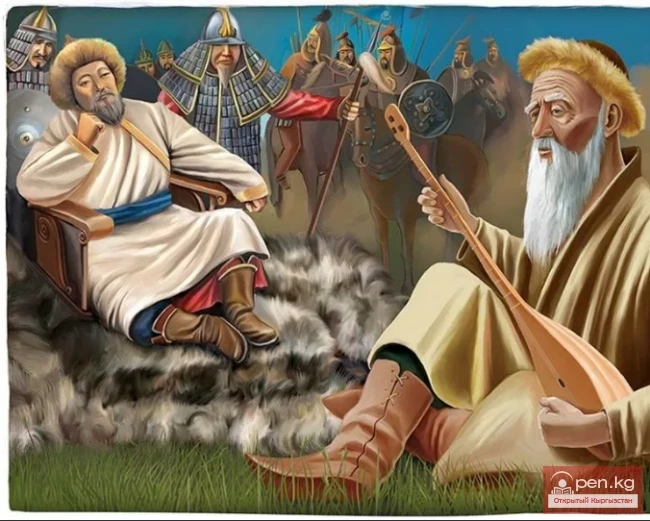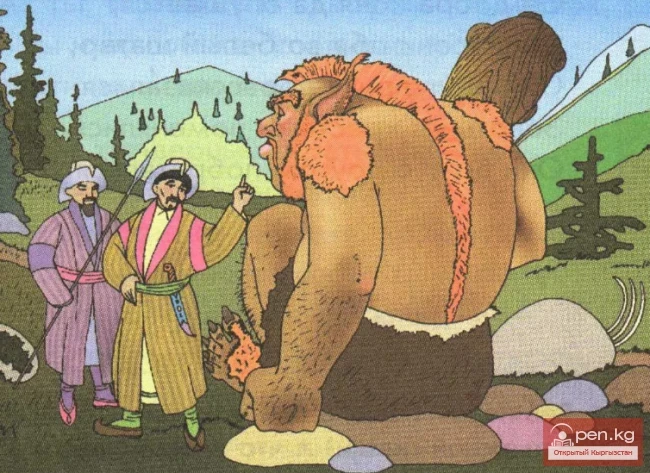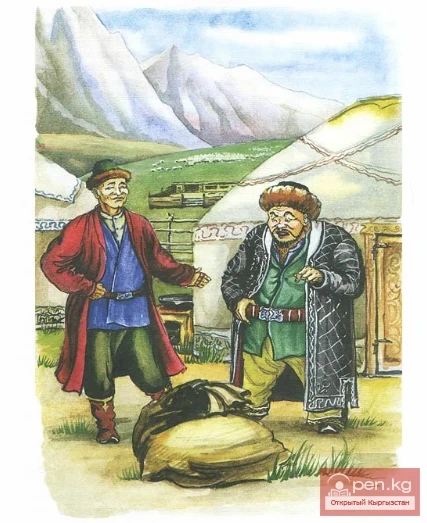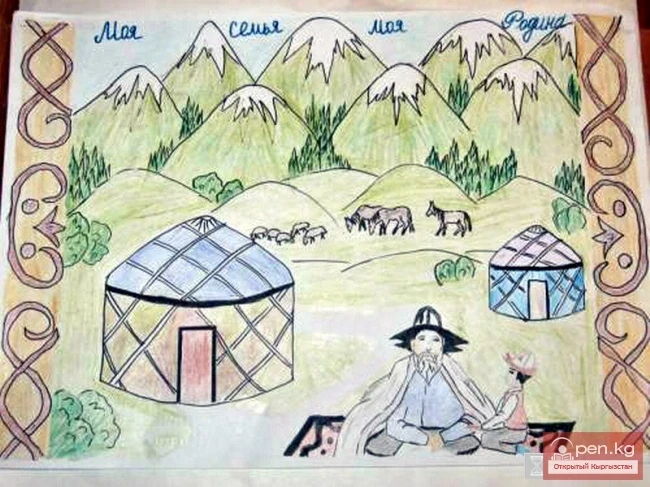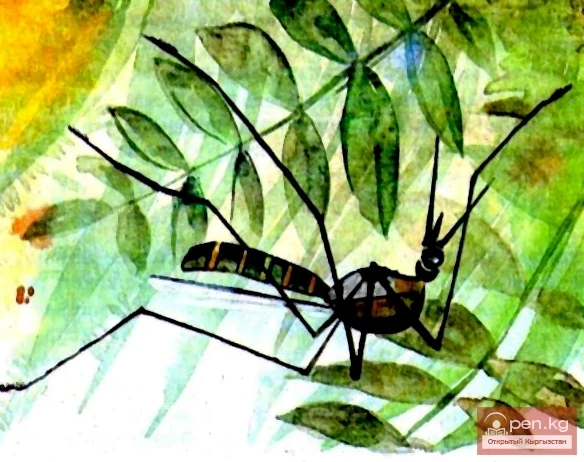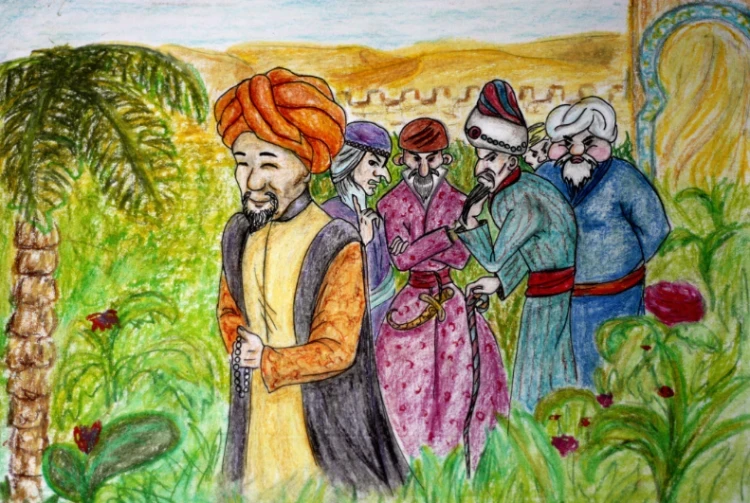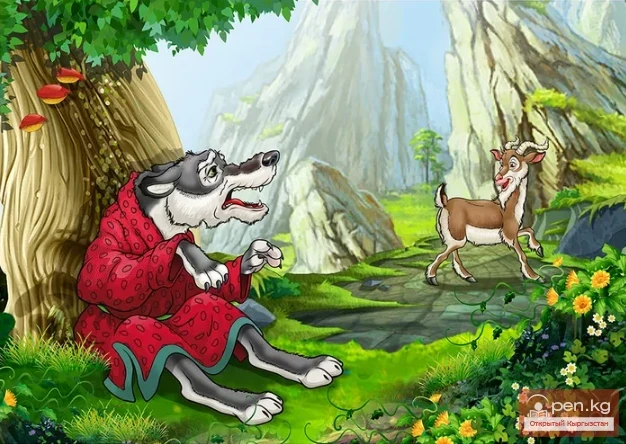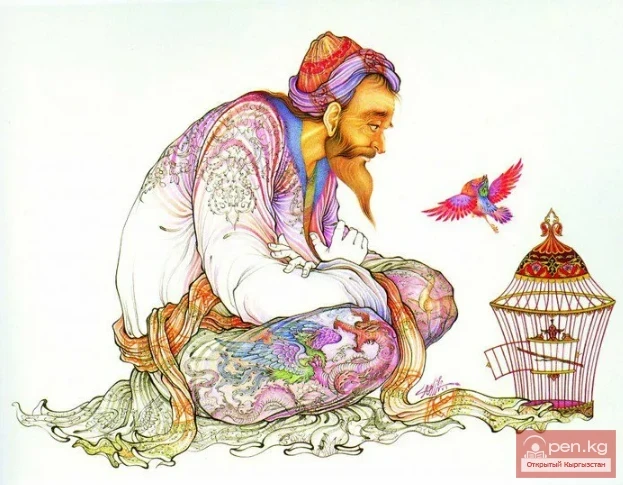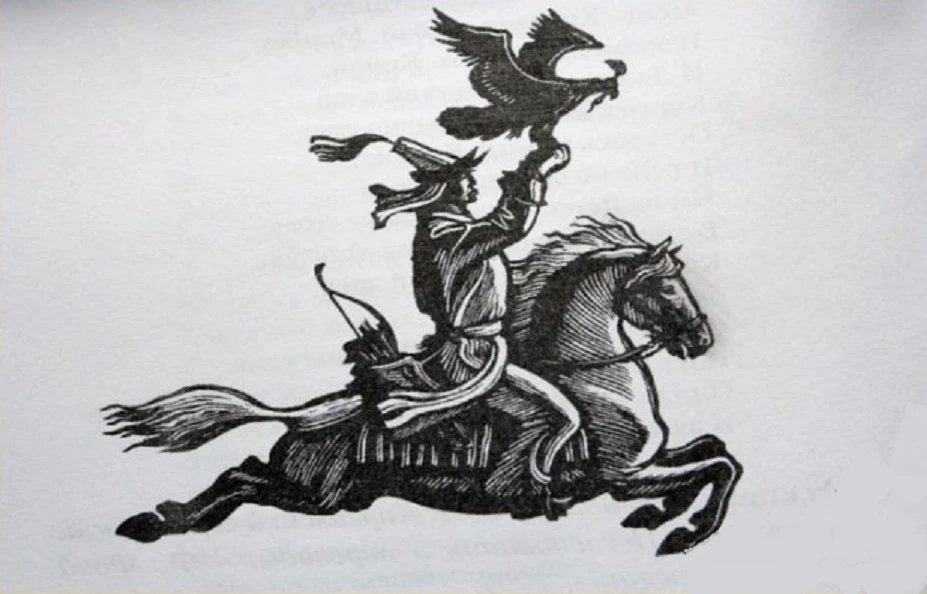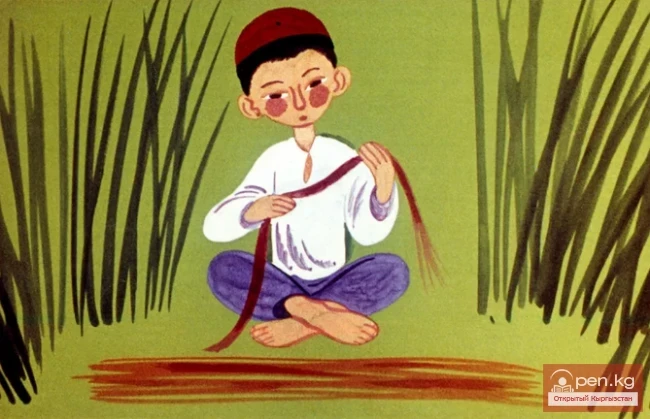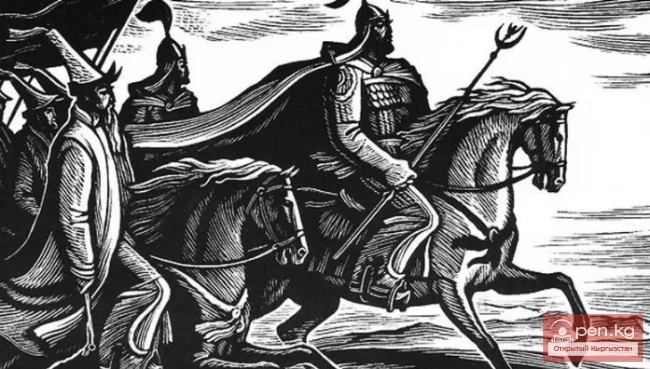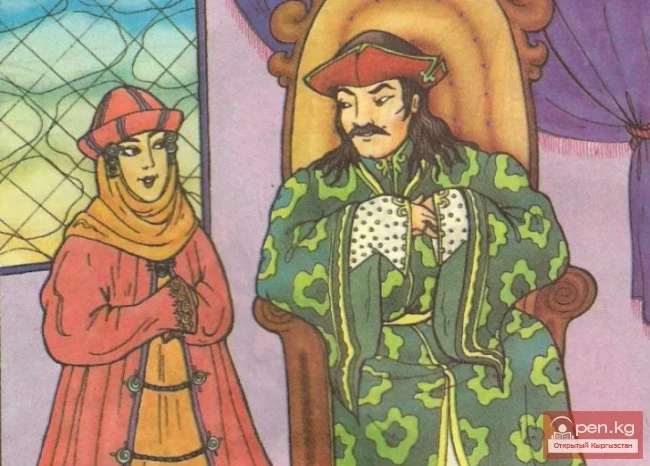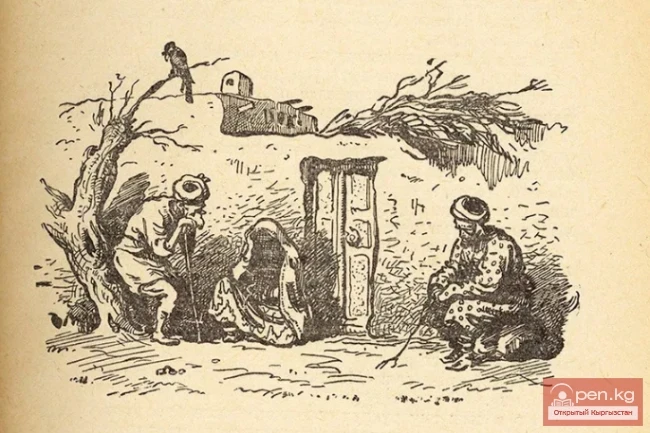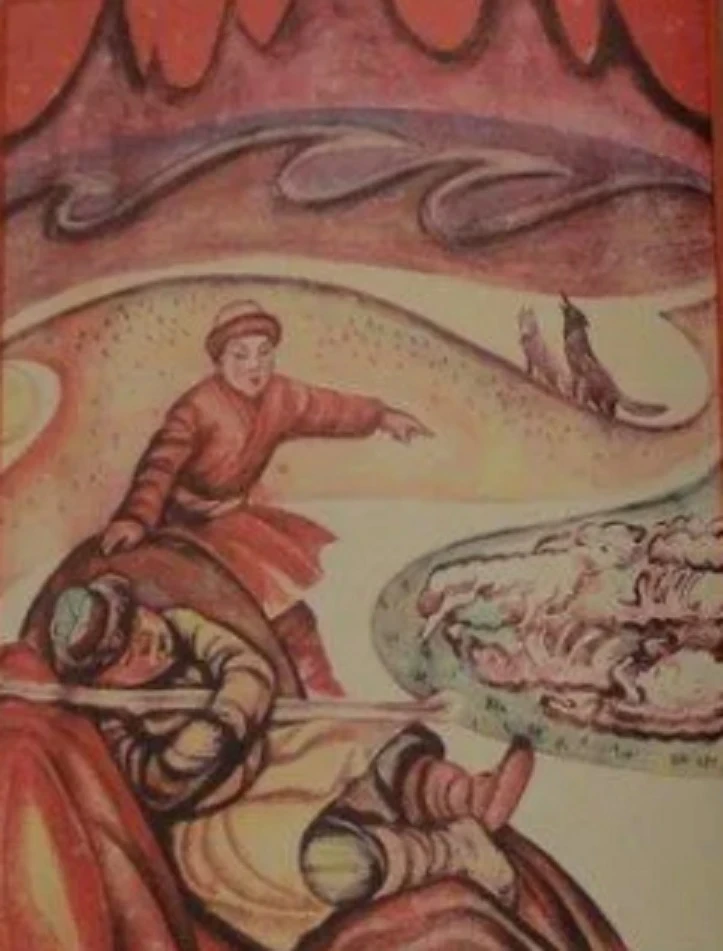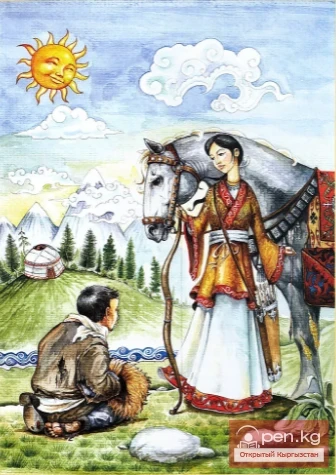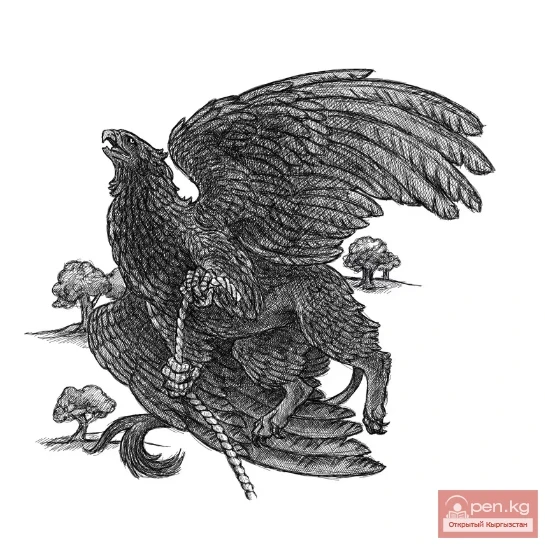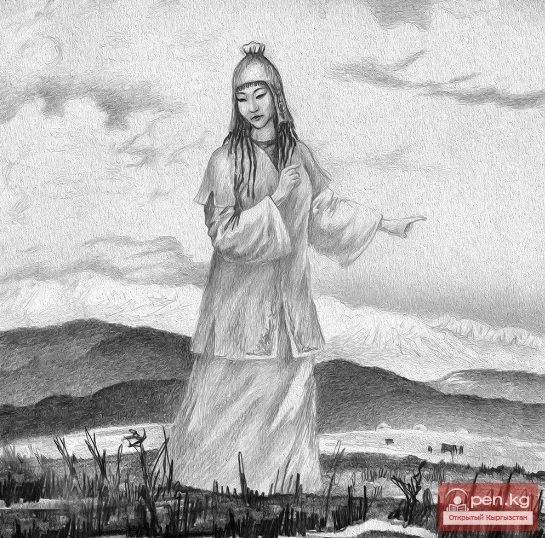
ZHÉERENCHÉ-CHÉCHEN AND KARACHACH
In ancient times, there lived a man named Zhéerenché-chéchen. Chéchen means "eloquent." He was nicknamed this because he was wise and resourceful in conversation. He had a son named Telemyrza, about whom the wise Zhéerenché heard every day from the people: "He is such a deceiver, such a liar; he has never spoken a single word of truth in his life."
Telemyrza would kill a crow and boast that he had killed a gazelle. In reality, he could do nothing, and everyone knew this well. One day, Telemyrza, as always, bragged before the gathered people:
— Recently, I shot at a gazelle; the bullet only grazed the tip of its ear and the tip of its hoof, and the gazelle ran away.
Hearing this, Zhéerenché thought bitterly: "What a liar my son Telemyrza is!"
— Ah, my son, — he said, — it seems you shot at the very moment when the gazelle was scratching its ear with its hoof!
The people who heard his words laughed, while Telemyrza remained silent.
And when they were alone, Zhéerenché said to his son:
— Oh, you are such a good-for-nothing, boy! Why do you lie? If you want to become a worthy person, do not lie anymore. Lies will bring you much harm in life and hinder your happiness.
Telemyrza was silent. The father thought that his son would no longer lie.
One day, Zhéerenché decided to test Telemyrza. They were riding together at night on the road. Zhéerenché said to his son:
— Your eyes are sharper than mine — take a look at what is visible ahead. Is it not a ram?
— Yes, indeed, it is a ram, — Telemyrza replied to his father. — It is standing there and feeding its young!
Hearing these words, Zhéerenché was saddened — his son had lied again. After all, there was no one ahead!
Zhérechen was deeply troubled that his only son was such a liar. Moreover, Telemyrza was also rather foolish.
On another occasion, they set off on the road together again. The father said:
— My son, prepare food on the mane of the horse!
Telemyrza quickly dismounted and began to set fire to the horse's mane.
— Oh, my son, "preparing food on the mane of the horse" means to take and eat the food stored in the travel bag without dismounting from the horse, — Zhéerenché told him.
After riding a little further, Zhéerenché said to his son:
— My son, shorten the long way.
Telemyrza dismounted and began to level the bumps on the road with a tool.
Then the wise Zhéerenché said to him:
— My son, you cannot shorten the long way with a tool. "To shorten the long way" means to have an interesting conversation.
A conversation on the road is entertainment; with it, you will pass the entire journey unnoticed... Oh, — the old man sighed bitterly, — will my only son never become a person! But it is not in vain that it is said among the people: "Wisdom is passed down, happiness is transmitted."
I must look for him a wise and truthful wife, decided the wise Zhéerenché.
He saddled the best horse and set off to find a bride for his son.
There was no tribe he did not visit, no place he did not go. He traveled for six months — many girls, but there was none like the one Zhéerenché sought.
The old man rode further and saw: not far from the aul, girls were herding calves and gathering firewood. Suddenly, it started to rain.
Some ran away, dragging calves and firewood, others, leaving everything behind, saved themselves. And only one girl remained in place. She covered the firewood with her chapan — a robe, and hid herself with the calves under the firewood.
Wise Zhéerenché approached the girl and asked her:
— My child, all the girls have run home, why did you stay in the rain?
— Oh, father, those girls have four losses, while I have one loss but three gains! — replied the girl.
Zhérechen asked:
— What are these three gains?
— The calf did not suck the milk from the cow — that is the first gain; my firewood remained dry, and I did not get wet — that is the second gain. When I return home, my mother will not scold me — that is the third gain. The only loss is that my chapan got wet. And those girls have four losses: the calves sucked the milk from the cows, the firewood and clothes got wet, and their mothers will punish their daughters for this!
— I like you, my child. Which of the yurts in the aul is yours? — asked Zhéerenché.
— As soon as you enter the aul, you will immediately see our yurt, my father. We live where forty spears are set up around.
Zhérechen was delighted that he had finally found the one he was looking for. He entered the aul and began to search for the yurt where the girl lived, but he did not find it right away. "It seems the girl has given me a riddle. Forty spears — that must be forty poles of the dome of a leaky yurt, which is visible over there." And the old man went straight to the poor yurt standing on the edge of the aul.
The girl's father and mother were good and kind people: they warmly welcomed Zhéerenché and treated him with what they had. When dinner was finished and it was time to go to bed, Zhéerenché turned to the girl's parents:
— My name is Zhéerenché, I have an only son, Telemyrza. I am looking for a bride for him. I really liked your daughter, and I would like to become related to you so that our children will be happy.
— All this is good, but we are poor people, — replied the girl's father and mother, — all we have is our daughter Karachach. You are a noble and well-known wise Zhéerenché; will our daughter please your son?
— I really liked your wise daughter. She will please my son — Telemyrza, — said Zhéerenché and continued:
— Let the name Karachach henceforth be Akylkarachach — the clever Karachach, and let her be happy. I must propose to her as is customary among the people. Let everything be as our customs dictate. How many camels, horses, and cows should I bring you for your daughter? Tell me openly.
— I will not name a kalym; I do not want to exchange my only daughter for livestock, like a roped animal, — replied Karachach's mother. — Let my daughter decide for herself how to deal with the kalym and all other customs.
— My father and mother, — said Karachach at that moment, — cannot sell the only thing they have — their daughter. Karachach will only go where her heart leads her.
Zhérechen was amazed by what he heard and went home. He dressed his son Telemyrza and came with him to Karachach. Karachach liked Zhérechen's son.
The news spread through the aul: the poor man Tokson is marrying his only daughter to Telemyrza — the son of Zhérechen; Karachach did not allow her parents to receive a kalym for her. Well, it is said: "A girl can marry without a kalym, but there cannot be a wedding without a wedding ceremony!"
"Let’s go to the wedding, and we will receive the gifts due," decided the people. And all the girls of the aul gathered for Karachach's wedding.
Zhérechen held a lavish wedding, slaughtering many livestock. For seven days, the guests feasted, and on the eighth day, Zhérechen and his son took Karachach to their aul. Everyone in their aul liked the clever, kind, and resourceful Karachach. Since the bride came into Zhérechen's house, his affairs improved even more. And his son, Telemyrza, became wiser and stopped lying. The people said: "Indeed, Zhérechen's daughter-in-law is good, for such a fool as Telemyrza has become a man."
The fame of Karachach reached even the ears of Khan Janibek himself. Khan Janibek was a cruel and harsh ruler. He considered himself the smartest person and could not tolerate anyone being smarter than him. And the khan decided to go to Zhérechen to see his daughter-in-law.
Zhérechen met the khan with honor and treated him well. The khan asked to call Karachach. And when Karachach came, Khan Janibek said to Zhérechen:
— I have three questions for your daughter-in-law.
— Ask! — said Zhérechen-chéchen.
— Can a stallion be exchanged for a cow? Can a horse be exchanged for a donkey? Can a white falcon be exchanged for a crow? Solve these riddles of mine; tomorrow I will come for the answer, — said Khan Janibek and rode away.
The next morning, the khan came for the answer.
Karachach said to him:
— A cow that gives milk is better than a weak stallion. A sturdy donkey is better than a frail horse. A crow with wings is better than a wingless white falcon.
The khan said nothing, mounted his horse, and rode home.
Khan Janibek saw that Karachach was indeed wise and resourceful, but he was still not satisfied.
Soon, he sent his minister to Zhérechen and ordered him:
— Let Zhérechen come to me tomorrow morning — neither on foot nor on horseback, and let him not go by road or by field.
Zhérechen listened to the khan's minister and was saddened.
The clever Karachach learned of Khan Janibek's order and said to Zhérechen:
— Do not be sad, father. Get up early in the morning and saddle a goat. Ride it not by the road, but through the hilly steppe that lies between the two roads. And when the khan asks you how and on what you rode, answer like this: "I came not on a horse but on a goat. I did not ride by the road or by the field, but I rode through the hilly steppe between the two roads!"
Zhérechen did just that. He arrived at the khan's palace and said to him:
— Khan, I have fulfilled your order. I came neither on a horse nor on foot; I came on a goat. I rode not by the road nor by the field, but through the hilly steppe lying between the two roads!
The khan listened to Zhérechen's answer, became angry, and ordered him to go home. The next morning, a horseman from the khan arrived at Zhérechen's house with a new order:
— The khan ordered that within thirty days, tendons be pulled from stone and boots be sewn from sand.
— Who can pull tendons from stone and sew boots from sand? — Zhérechen wondered.
But Karachach said to him:
— Be patient, father; patience is gold!
Thirty days passed. Karachach dressed up, covered her face with an old scarf, and went to the khan.
— My lord khan, — she said, — it is hard to live in poverty. I intended to sew myself boots from sand, but we cannot find tendons pulled from stone. So I came to you to ask if you have any?
And Khan Janibek had already forgotten his own order. He became angry and shouted:
What a fool you are! Are you out of your mind? Can boots be sewn from sand or tendons be pulled from stone? Stop talking nonsense and get out of here!
Then the clever Karachach took off the old scarf covering her face and said to the khan:
— You are right, my khan. I was just thinking of how to fulfill your order — to sew boots from sand with tendons pulled from stone!
Having said this, Karachach quietly left. And Khan Janibek did not know what to do out of frustration.
Clever Karachach returned home and told Zhérechen everything. Zhérechen was very pleased with his daughter-in-law.
Meanwhile, Khan Janibek came again. He ordered his horsemen to bind Zhérechen's hands and expel him from his homeland.
And his son Telemyrza was subjected to cruel torture and forced to do the hardest work.
A whole year passed. Zhérechen sent a letter to his homeland through a loyal person. The letter was in riddles.
"I have heard, — wrote Zhérechen, — that your crops have sprouted well and ripened well. You have excellent reapers, so do not leave your crops until winter; harvest them in time. There is a black blind goat among you; tie it and throw it into the lake. There is also another goat with straight horns. Make him the leader of the herd. I have a little knife with a sharp blade, and there is also a worthless knife — let the people not forget about it."
The people listened to these riddles, but no one could solve them.
— Only Zhérechen's daughter-in-law, the clever Karachach, will be able to solve these riddles, — they all said at once and went to her to ask her to decipher Zhérechen's riddles.
And so Karachach began to solve one riddle after another:
— "Your crops have sprouted well and ripened well" means that we have many enemies, and they have become even more oppressive. "You have excellent reapers, so do not leave your crops until winter; harvest them in time" means: "You have always been brave, so now attack the enemies and kill them just as you harvest the crops with a sickle."
"There is a black blind goat among you; tie it and throw it into the lake" means: "Kill Khan Janibek and throw him into the lake." "The goat with straight horns" is Berdibek, the younger brother of Janibek; make him your khan. "The little knife with a sharp blade" is me, Karachach. "The worthless knife" is Telemyrza. — And the clever Karachach finished the riddle with these words: — Fathers of the people, elders, brave horsemen, quickly destroy the black blind goat!
And the people killed the cruel Khan Janibek. In his place, the people elected the brave and wise Berdibek. Zhérechen returned to his homeland. And they began to live peacefully in their home again: Zhérechen, Telemyrza, and the clever Karachach.
Kyrgyz Tales
